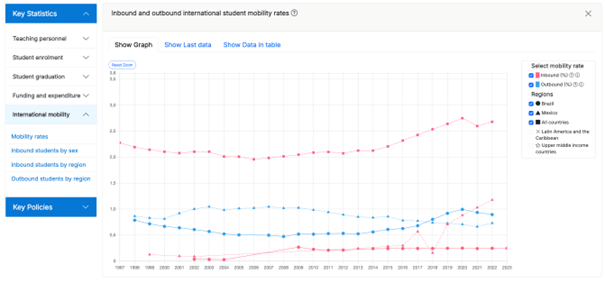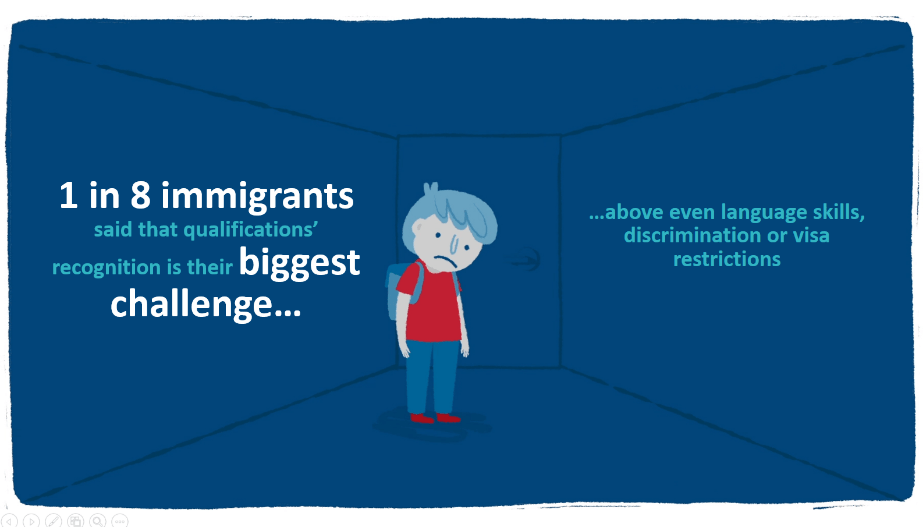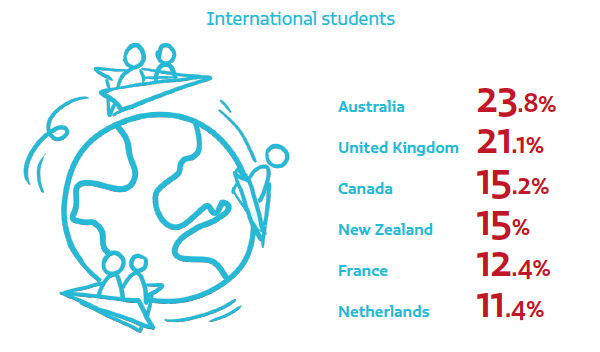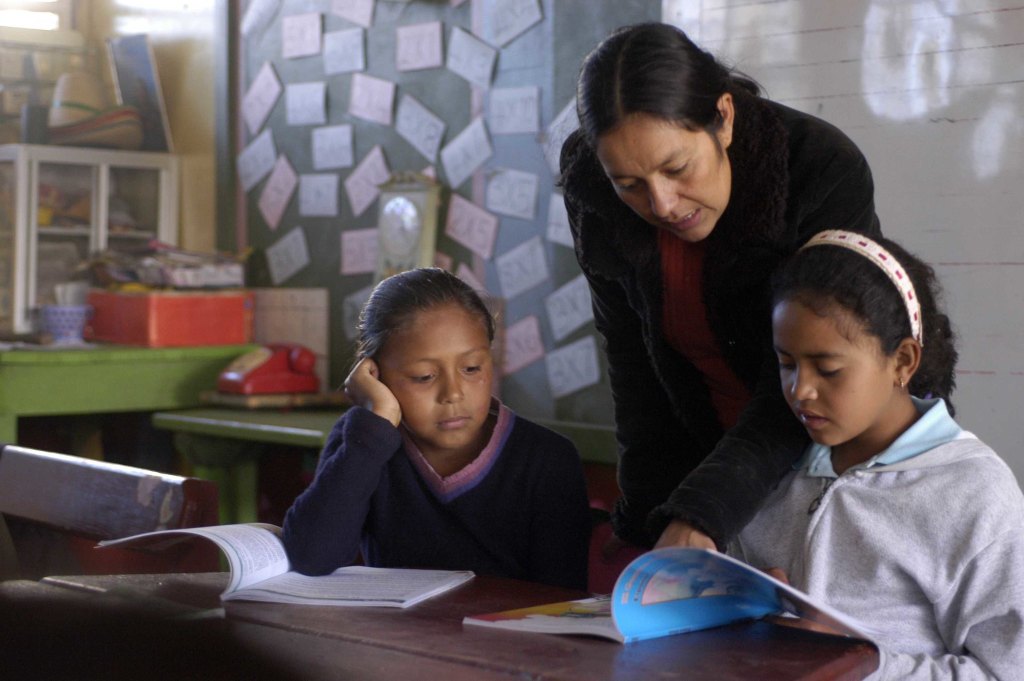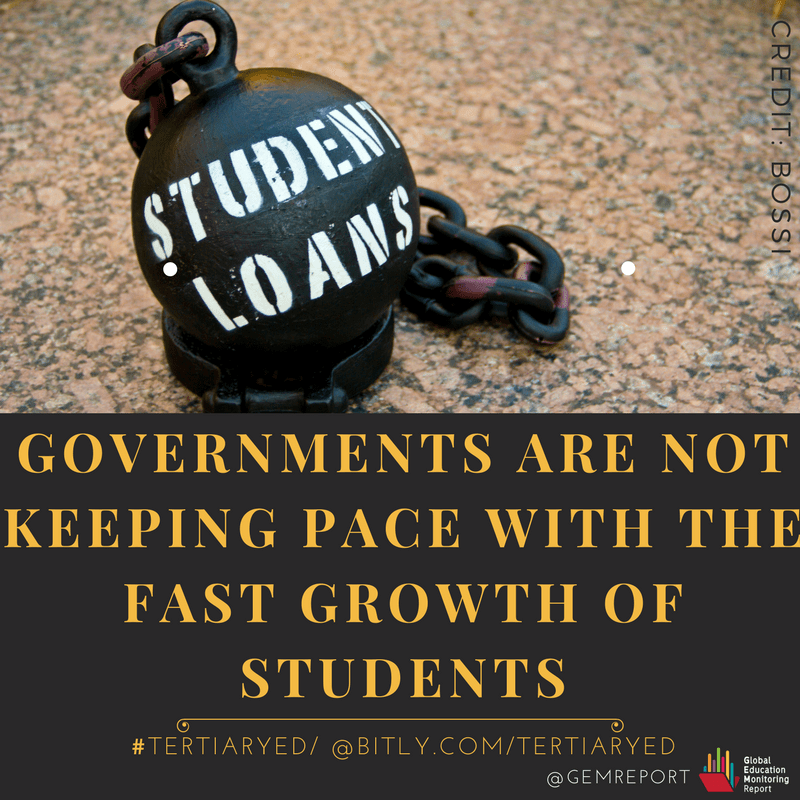By Francesc Pedró, Mathias Bouckaert and Vanja Gutović, UNESCO
Evidence-based policymaking in higher education requires systematic access to reliable data and analytics. Whether expanding access and equity, improving educational outcomes, or adapting to evolving labour market demands and societal challenges, decision-makers require a comprehensive understanding of how systems are structured and how they perform. While global monitoring has made significant progress in primary and secondary education, data on higher education remains fragmented and inconsistent in many areas. To address this gap, UNESCO is developing new tools and initiatives, including the Higher Education Policy Observatory, which represents a critical step toward systematic global monitoring of tertiary education systems.
The higher education landscape is characterized by massification, internationalization and digital transformation. This demands sophisticated approaches, based upon robust, comparable and timely data to diagnose systemic challenges, identify equity gaps, design evidence-based reforms and policies, and track progress toward national and international goals. It also facilitates policy learning and benchmarking by making systems more comparable.
Decades of international coordination in primary and secondary education have led to robust monitoring systems. However, higher education continues to lag behind. A fragmented data infrastructure significantly constrains policy formulation, implementation and evaluation.
Structural impediments to data-driven higher education policymaking
Despite growing recognition among policymakers and institutional leaders of the need for data-informed governance, several structural barriers continue to limit its application in higher education:
- Data availability and standardization: Many countries still lack comprehensive frameworks to collect and report higher education data. A new data availability index featured in the Higher Education Policy Observatory reveals that, on average, countries report less than 50% of higher education statistics to the UNESCO Institute for Statistics (UIS). The regional disparities in data reporting are stark, with average reporting rates ranging from 76% in North America and Western Europe to 46% in Latin America and the Caribbean, and a concerning 27% in sub-Saharan Africa.
- Technical and institutional capacity: Limited analytical capacity constrains evidence-based policymaking. A UNESCO report prepared for the 3rd World Higher Education Conference in 2022 documented that ministries and higher education institutions, particularly in low- and middle-income countries, often lack the technical infrastructure, skilled personnel and integrated data management systems needed to analyse complex datasets and translate findings into actionable policy recommendations.
- Conceptual and methodological challenges: Key aspects of higher education such as learning outcomes, financial sustainability and institutional quality lack standardized definitions and measurement frameworks across national contexts. This challenge is compounded by the heterogeneity of higher education systems worldwide, making it difficult to develop indicators that support meaningful international comparisons and longitudinal analyses.
Higher education governance presents unique analytical challenges. Unlike primary and secondary levels of education, it involves multiple stakeholders – including governments, governing boards, institutional leaders, faculty, and students – operating across various layers of decision-making. Central to this complexity are the principles of academic freedom and institutional autonomy. However, these values do not preclude transparency. On the contrary, systematic data on how higher education systems operate and their performance outcomes can enhance engagement among governments, institutions, and civil society in policy dialogue, ultimately strengthening democratic governance and accountability in the sector.
Strategic approaches to enhancing data infrastructure in higher education
Addressing these challenges requires coordinated action across three key dimensions:
- Integrated data platforms and interoperability
Fundamental to evidence-based policymaking is the development of integrated systems for how data are collected, accessed and analysed. This requires tools that enable policymakers, researchers and other stakeholders to navigate and analyse complex higher education systems. At the national level, this necessitates developing comprehensive education management information systems (EMIS) specifically designed for higher education and ensuring data accessibility through interactive dashboards and APIs that promote transparency and stakeholder participation. At the international level, regional and global initiatives such as the European Higher Education Sector Observatory and the IAU’s WHED database facilitate cross-country analyses by providing comparable data on higher education systems and institutions.
Complementing these initiatives, UNESCO’s Higher Education Policy Observatory represents a pioneering global platform for systematic analysis of higher education systems and policies across nearly 150 countries. The platform integrates national profiles with global and regional analytics, enabling users to examine how systems are structured and their performance metrics. Originally launching with over 40 foundational policy indicators at the system level, the Observatory has recently been expanded to include the full range of higher education statistics collected by the UNESCO Institute for Statistics (UIS), encompassing areas such as academic staff, enrolment, completion, funding and expenditures and international student flows. These indicators allow users to track system performance over time and across regions using customizable charts or downloadable tables.
Caption: Compare statistical trends across countries and regions for enrolment, graduation, mobility, and more.
Recent enhancements include advanced visualizations and a Policy News section that tracks real-time developments in higher education policy globally.
These national and international initiatives collectively contribute to a more robust evidence base for policymaking, supporting reform processes, and enabling coordinated approaches across and within national higher education systems.
- Enhanced analytical capacity development
Equally critical is developing the capacity of national stakeholders to conduct sophisticated data analysis in higher education policymaking. Robust datasets have little value without skilled analysts capable of interpreting complex statistical patterns and translating them into policy recommendations. UNESCO has established multiple capacity development initiatives in this area across all levels of education, including its Community of Practice on EMIS, the UIS’s ongoing support to national data systems, and IIEP’s tailored training and technical assistance for education planning and management.
In higher education specifically, UNESCO IESALC is launching a comprehensive suite of capacity development programs leveraging the Higher Education Policy Observatory, ranging from online courses delivered through its Campus IESALC platform, which has trained over 33,000 professionals since 2020, to customized in-country technical assistance programs.
- Improved indicator development and methodological innovation
The global higher education data infrastructure must continue to evolve to meet contemporary policy needs. While substantial progress has been achieved in monitoring primary and secondary education, through the sustained efforts of the UNESCO Institute for Statistics and the Global Education Monitoring Report, higher education monitoring remains relatively underdeveloped. Addressing this gap demands enhanced collaboration between international organizations, national authorities and statistical offices to expand indicator coverage, improve data quality, and ensure that higher education is adequately represented in global monitoring frameworks such as the SDGs. The Higher Education Policy Observatory aims to develop partnerships with countries and international organizations to propose new indicators that address emerging policy priorities, supporting, where relevant, the work of the Education Data and Statistics Commission.
Bridging the higher education data gap transcends technical considerations. It represents a governance imperative fundamental to achieving equitable and sustainable higher education systems. With appropriate tools, enhanced analytical capacity and strategic partnerships, policymakers can leverage the transformative potential of data to develop more evidence-based, equitable and responsive higher education systems that meet the challenges of the 21st century.

